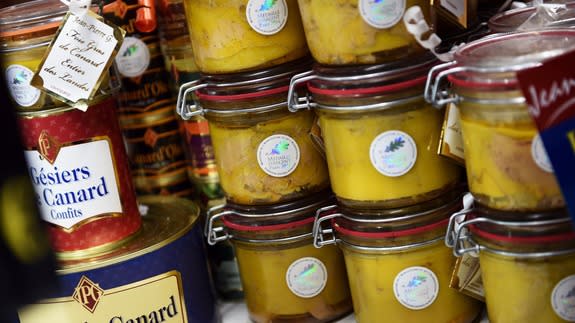France bans most foie gras production for three months

France's foie gras production has ground to a halt for the next three months, but the reason behind the ban probably isn't what you think.
SEE ALSO: Sacré bleu! Restaurants in France now have to give out doggy bags
Foie gras producers in 18 départements in south west France will be banned by the Ministry for Agriculture from having any ducks or geese in their factories and slaughterhouses from this week until Aug. 15, bringing a halt to 71% of the national production of foie gras.
While animal rights campaigners have long been calling for a ban on the French delicacy — made from fattened duck or goose liver — the halt is down to an unprecedented bird flu epidemic that's hit southwestern France.
In November 2015, a highly virulent strain of the H5N1 virus was found at a chicken farm in the Dordogne region of France, prompting an intervention by veterinary watchdogs.
H5N1 is lethal for birds, but — unlike other forms of flu — it does not typically spread between people. Humans only contract the virus if they come into close contact with sick or dead poultry infected with the virus.
The ban will have a heavy impact on France's agricultural industry; with breeders claiming the production halt will amount to a loss of €130 million ($115 million).
"This interruption of business will cause cash flow difficulties, additional salary costs linked to the partial lay-offs of approximately 4000 employees, and fixed charges that must be paid despite the stop in business and income," Marie-Pierre Pé — general secretary of foie gras producers association Cifog — told Le Figaro.
France's Ministry for Agriculture announced in January that it will provide compensation for producers to the amount of the estimated losses.
The long-term consequences of the three-month ban will likely take a toll on the price of foie gras, according to foie gras producer Christophe Barrailh.
Barrailh told Le Figaro that there will be nine million fewer ducks on the national market, resulting in a noticeable price hike.
